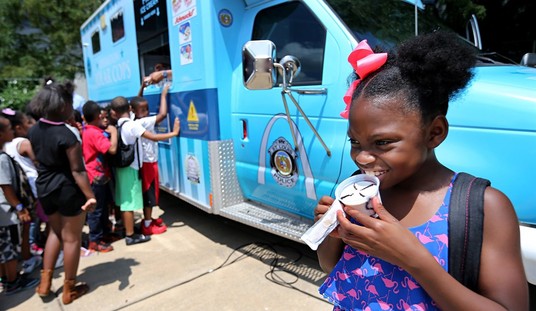The director of the Centers for Disease Control and Prevention said his agency is getting hate mail for bringing two Americans ill with the Ebola virus to Atlanta for treatment.
The first victim, Dr. Kent Brantly, arrived Saturday at Emory University Hospital, where he walked from the ambulance into the facility in a white protective suit. Another health worker, Nancy Whitebol, will follow. Both were working for Christian charities in Liberia, helping other Ebola victims when they fell ill.
“It’s encouraging that he seems to be improving. That is really important. And we are hoping he will continue to improve,” CDC Director Thomas Frieden said Sunday of Brantly’s condition.
Frieden said he doesn’t think that Brantly’s wife and two children will come down with the disease even though they visited him in Liberia.
“Our understanding is that they did not have contact with him when he was sick. So, it does not appear that they would be at risk,” he said.
“But that type of activity, contact tracing, finding people exposed to Ebola and tracking them for 21 days, and if they develop fever making sure they are isolated and finding their contacts, that is core public health action. And that is how you stop Ebola.”
Frieden acknowledged that this doesn’t mean the U.S. is immune from Ebola.
“We know that there are travelers from places where there’s Ebola. We know it’s possible that someone will come in. If they go to a hospital and that hospital does not recognize it’s Ebola, there could be additional cases, or their family members could have cases,” he said. “That is all possible. But I do not think it’s in the cards that we would have widespread Ebola in this country, because the way it spreads in Africa is really two things, first in hospitals where there is not infection control, and, second, in burial practices, where people are touching the bodies of people who have died from Ebola.”
“So, it’s not going to spread widely in the U.S. Could we have another person here? Could we have a case or two? Not impossible. We say in medicine never say never. But we know how to stop it here. But to really protect ourselves, the single most important thing we can do is stop it at the source in Africa. That is going to protect them and protect us.”
The director was reminded, though, that the CDC hasn’t had the best record recently on handling viruses with proper protocol.
“There were lapses in our laboratory. Fortunately, we identified them and reported them before anyone got harmed and before there was any release of anything into the community,” Frieden said of the mishandling of anthrax, smallpox and bird flu samples. “But that really shows the importance of being meticulous with infection control. We are doing that in our labs now. We are working around the clock to make them among the safest in the world. They’re already among the best in the world. But it really shows that, for health care workers, taking care of people with Ebola or other infectious diseases, it’s important to be completely meticulous with infection control.”
Frieden said Saturday that the CDC had received some “nasty email” and about 100 phone calls from people concerned that the Ebola victims were being brought to the U.S.
Donald Trump tweeted Saturday, “The U.S. must immediately stop all flights from EBOLA infected countries or the plague will start and spread inside our ‘borders.’ Act fast! The fact that we are taking the Ebola patients, while others from the area are fleeing to the United States, is absolutely CRAZY-Stupid pols.”
“The U.S. cannot allow EBOLA infected people back. People that go to far away places to help out are great-but must suffer the consequences!” he tweeted Friday.
Frieden responded on ABC Sunday. “Well, Ebola’s scary. And it’s understandable that with a deadly disease, people are concerned. But the plain truth is that we can stop Ebola. We know how to control it. Hospital infection control, and stopping it at the source in Africa. You know, we’re not going to hermetically seal the borders of the U.S. We’re reliant and interdependent with the world for travel, for trade, for economy, for our families and communities,” he said.
“But really, the single most important thing we can do to protect Americans is to stop this disease at the source in Africa.”
Rep. Adam Schiff (D-Calif.), a member of the House Intelligence Committee, told CNN that he was fine with the patients being brought back to the U.S.
“The Samaritan organization in which they were serving in Africa, they made the decision they wanted to bring back their two personnel, and then it was really a question of coordinating with the CDC and other health care providers to make sure that could be done safely and what the mechanism would be. And I think that’s the way it should be,” Schiff said. “We shouldn’t preclude Americans from coming home when they’re sick. I think the role of government is actually to facilitate making sure that they’re safe when they come home and the community is safe and I have every confidence that we can do that.”









Join the conversation as a VIP Member